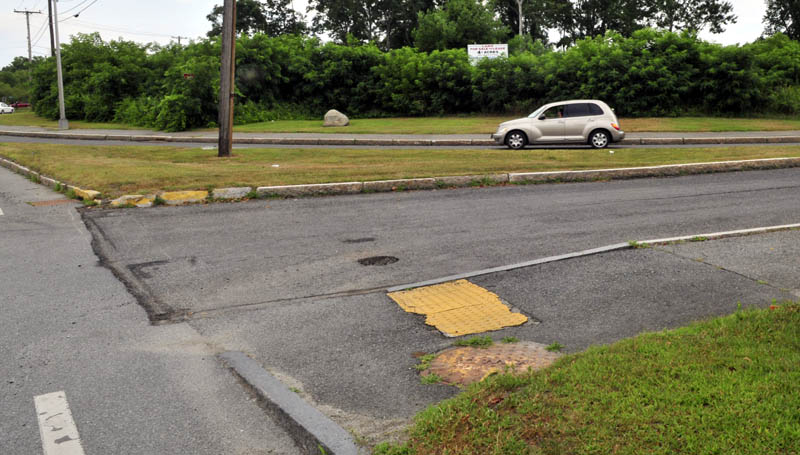WATERVILLE — The City Council announced Tuesday that the city is considering three sites for a new police station.
The matter was discussed largely in private Tuesday during a special meeting in City Council chambers.
About 7:45 p.m., after concluding a lengthy discussion on the city’s tax base, the council voted unanimously to enter executive session. At 8:30, the councilors invited about 10 residents into the chambers for an update.
City Manager Mike Roy said the council met in private to discuss the price and conditions of a College Avenue parcel in a parking lot owned by the American Legion, or two lots in Colby Circle — one on either side of the Social Security Administration building.
The council didn’t vote on the issue Tuesday. Instead, it tabled discussion until the council’s next regular meeting, on Aug. 7.
Councilor Erik Thomas said the board didn’t have enough information on the properties.
Roy said the council also briefly considered the Social Security Administration building but ultimately ruled it out. Finding a home for a new police station has been an issue for almost two years.
In December, a committee that studied several potential sites recommended Head of Falls over all others, including Colby Circle. In February, councilors voted 5–2 to build at Head of Falls, but recent public outcry against the waterfront site prompted the council to consider Colby Circle again.
Residents had asked whether police response from a station at Head of Falls would be slowed by passing trains, whether the site would be susceptible to flooding, whether the cost would be too high and whether having a station there would inhibit further economic development near the historic Two-Cent Bridge. Police and city officials have said any concerns about trains or floods are negligible.
The current police station is in the basement of City Hall.
At the beginning of the meeting, the council discussed the possibility of enacting a PILOT tax program in the city. Earlier this year, during budget talks, the council asked Roy to explore the possibility of seeking PILOT, or payments in lieu of taxes, from tax-exempt properties such as Colby and Thomas colleges and the hospitals.
Roy said a PILOT program is already on the books for tax-exempt residential properties such as Seton Village and the Waterville Housing Authority, but it cannot be applied to dormitories or hospitals.
Geoffrey Herman, director of state and federal relations at the Maine Municipal Association, conducted a presentation about PILOT programs and offered the council options for expanding the city’s ability to assess fees from tax-exempt properties for the services they use.
Herman said PILOT programs are popular in the Northeast but rarely used in Maine. He said there’s little guidance in Maine law about administering the programs, and implementing them can be politically challenging.
Councilor Eliza Mathias asked Herman how the number of tax-exempt properties in the city compares with other Maine municipalities.
“Waterville is probably at the top as far as tax-exempt properties,” Herman replied. “I think Waterville takes the cake.”
Mayor Karen Heck said property owners in Waterville are shouldering too much of the burden and would like to see other organizations share the cost of running the city.
“The bottom line is the city has a revenue problem, because we’re not getting money from the state,” she said. “That’s the whole reason we’re looking into this.”
Ben McCanna — 861-9239
bmccanna@centralmaine.com
Send questions/comments to the editors.



